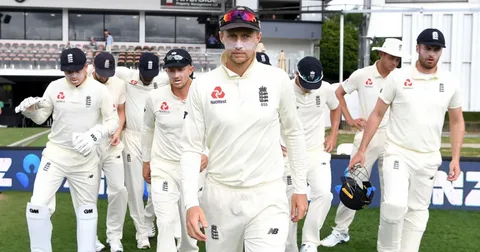The Role of the England Cricket Team in International Cricket: Dominance and Challenges
England’s Historical Legacy in Cricket
The England cricket team holds a pivotal role in the history of cricket, being among the oldest and most storied teams in the sport. As the birthplace of cricket, England introduced the game to the world in the 16th century, laying the foundation for its growth. The establishment of international fixtures, such as The Ashes against Australia in 1882, marked the team’s significant influence in shaping competitive cricket. The legacy of the English team is intertwined with the evolution of cricketing formats, from Test matches to limited-overs cricket and, more recently, T20s.
The English cricket team’s achievements in various formats demonstrate its adaptability and resilience over decades. From conquering Test cricket in the early 20th century to winning their maiden ICC Cricket World Cup in 2019, England’s journey has been a blend of triumphs and trials.

| Era | Achievements | Key Players |
|---|---|---|
| Pre-1950s | Dominated Test cricket with strategic play | W.G. Grace, Len Hutton |
| 1970s–1980s | Competitive rise in ODIs, Ashes victories | Ian Botham, David Gower |
| 1990s–2000s | Struggled in ODIs but consistent in Tests | Andrew Flintoff, Nasser Hussain |
| Post-2015 | Revolutionized white-ball cricket, WC winners | Ben Stokes, Joe Root |
Revolutionizing White-Ball Cricket
England’s transformation in white-ball cricket post-2015 is widely regarded as revolutionary. Under the leadership of Eoin Morgan, England adopted an aggressive and fearless approach, setting new benchmarks in limited-overs cricket. This approach culminated in their historic victory in the 2019 ICC Cricket World Cup, a final that is often hailed as one of the greatest games in cricketing history. England’s ability to score heavily in ODIs and T20Is, coupled with strategic bowling, has made them a formidable force.
Their focus on fitness, analytics, and scouting has elevated their gameplay. Central contracts and the prioritization of young talent have allowed England to build a robust pipeline of cricketers. However, balancing their Test and limited-overs commitments remains a challenge.
Challenges in Maintaining Test Cricket Prowess
Despite their dominance in white-ball cricket, England faces hurdles in maintaining their stature in Test cricket. The growing popularity of T20 leagues worldwide has influenced player preferences, sometimes leading to fatigue and uneven performances. Although England has produced stellar Test players like James Anderson and Stuart Broad, consistent performances in challenging overseas conditions remain an area for improvement.
Factors Impacting Test Performance:
- Scheduling Conflicts: Balancing Test and T20 leagues.
- Overseas Records: Struggles on subcontinental pitches.
- Player Management: Injuries and workload due to packed schedules.
| Test Cricket Challenges | Impact | Solutions Explored |
|---|---|---|
| Player fatigue | Decline in performance during long tours | Rotation policy, better scheduling |
| Difficulty in subcontinent | Spin-friendly pitches test adaptability | Intensive training for specific conditions |
| Decline in popularity | Less viewership compared to white-ball games | Promoting Test matches through marketing |
Adapting to Global Cricketing Trends
The global cricketing landscape has evolved with the rise of T20 cricket leagues like the IPL, BBL, and PSL. These leagues offer lucrative opportunities but also pose challenges for national teams. England has embraced this change by integrating their players into these leagues, allowing them to gain exposure to diverse conditions and high-pressure situations. However, the reliance on franchise cricket has necessitated careful player management to avoid burnout and maintain national team commitments.
Looking Ahead: England’s Cricketing Future
The future of English cricket looks promising, with a mix of experienced players and emerging talent. The ECB’s initiatives to nurture young players through The Hundred and domestic competitions provide a platform for the next generation to shine. Ensuring a balance between formats while sustaining success in global tournaments will be the key to England’s continued dominance.
By addressing challenges in Test cricket and building on their strengths in ODIs and T20Is, England is well-positioned to remain a powerhouse in international cricket.
